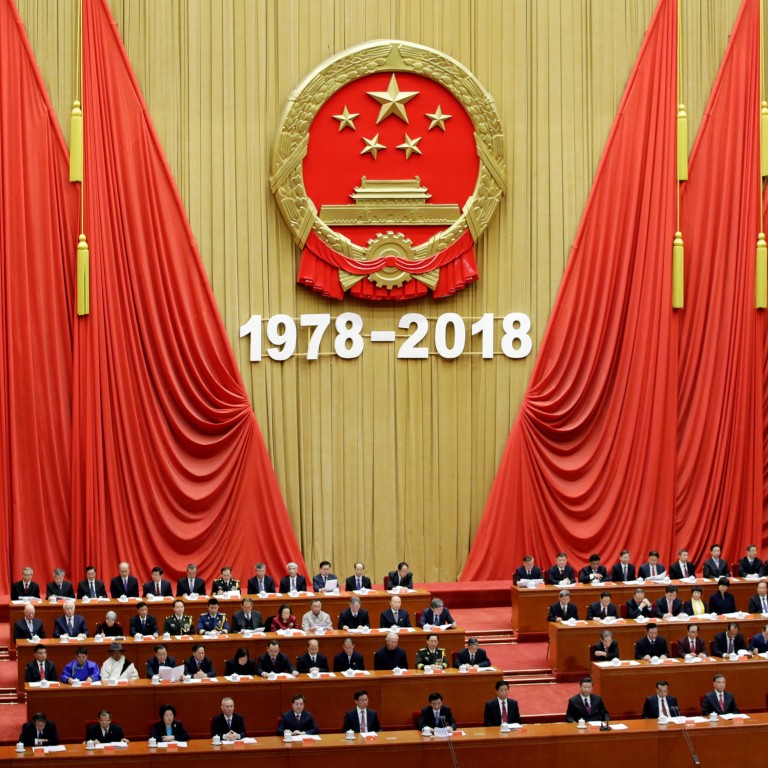
China’s Central Economic Work Conference for 2020: 5 things you need to know
- Annual meeting of top officials takes place at Jingxi Hotel in Beijing and will discuss China's economic policy for next year
- Measures to address impact of ongoing tensions set to be high on the agenda for the likes of President Xi Jinping, Premier Li Keqiang and Vice-Premier Liu He
WHO
The Central Economic Work Conference (CEWC) will be attended by the likes of President Xi Jinping, Premier Li Keqiang and Vice-Premier Liu He.
Financial regulatory officials, economic planners and provincial governors will also attend.
This includes heads from the National People's Congress, Chinese People's Political Consultative Conference, High Court, Supreme People's Procuratorate, state-owned enterprises, financial institutions and the People's Liberation Army.
In theory, it will be attended by all 204 members of the Communist Party’s Central Committee and 167 alternative members as well as a selected list of invited delegates.
WHEN
China’s senior policymakers begin setting out the government’s economic policy direction for next year, immediately after the ceremony celebrating the 40th anniversary of the country’s reform and opening up initiative.
The meeting is expected to last three days.
Economic policies discussed at the conference will be summarised in a report released by China's state-owned Xinhua News Agency once the meeting has finished.
Specific instructions will be then passed internally to government ministries as well as provincial and local administrators in the following two months to ensure proper implementation.
WHERE
The CEWC takes places at the Jingxi Hotel in Beijing.
The army-run hotel, 3km west of the Communist Party headquarters of Zhongnanhai, is the regular location for the CEWC.
The hotel is run by the Chinese military and therefore does not allow walk-in customers, with security around the hotel dramatically increasing during the CEWC.
WHAT
The annual CEWC discusses the economic policies for next year. The actual targets will be revealed in the Premier’s government work report delivered to the National People's Congress, the top legislature, on March 5.
Policymakers are expected to discuss ways to stabilise the domestic economy, an urgent task as the trade war with the United States has lasted 17 months and could escalate in the US election year.
They are expected to lower their headline growth target to “around 6 per cent” for next year, but would consider using more fiscal, credit and monetary measures to prevent growth from dropping significantly below it. China needs to secure at least 5.8 per cent of gross domestic product growth to achieve the target of doubling the size of the economy in 2020 from 2010.
Fiscal expansion is set to be a key tool next year, while monetary easing could be seen as a supporting role. The general consensus among economists is that the CEWC will set a higher fiscal budget deficit than this year’s target of 2.8 per cent. Policymakers will have to weigh the potential impact on the debt-ridden local governments, which is facing a decline of land sales and already lost tax revenues amid the country’s unprecedented 2 trillion yuan (US$283 billion) tax cut in 2019.
It is widely believed that the quota for local special purpose bonds, which is mainly used to fund infrastructure and transport facilities, will be raised above 3 trillion yuan (US$424 billion) in 2020, versus 2.15 trillion yuan (US$305 billion) this year.
Financial stability is also likely to be discussed, as more credit defaults and bank stress have been reported. The year of 2020 also marks the end of the three-year derisking campaign.
WHY
This year’s agenda for the meeting will be dominated by the question of how to respond to the rising damage being done to the domestic economy by the trade war with the United States.
Policy priorities that Beijing sets will be closely watched by the Chinese public, who are increasingly concerned about the impact of the trade war on their personal finances and jobs.

.JPG?itok=J8tgfPmW&v=1659948715)